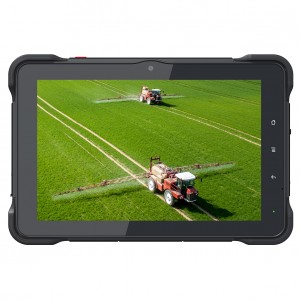As the world’s population continues to grow, agriculture is more important than ever in feeding the world. However, traditional farming methods have proven insufficient to meet the demands of a growing population. In recent years, precision agriculture and smart farming have received a lot of attention as innovative agricultural practices that can address this issue. Let’s dive into the difference between precision and smart farming.
Precision agriculture is an agricultural system that focuses on using technology to optimize crop yields and reduce waste. This agricultural system utilizes information technology, data analysis and software tools to improve accuracy and efficiency. Precision agriculture involves assessing variability in soil, crop growth and other parameters within a farm, and then making necessary adjustments to improve efficiency. Examples of technologies used in precision agriculture include GPS systems, drones, and sensors.
Smart farming, on the other hand, is a comprehensive and all-encompassing agricultural system that involves the integration of many different technologies. This farming system relies on artificial intelligence, IoT devices, and big data analytics to make the most efficient use of resources. Smart farming aims to maximize yields while minimizing waste and negative impact on the environment. It touches on everything from precision farming methods to smart irrigation systems, livestock tracking and even weather tracking.
A key technology used in precision and smart farming is the tablet. The tablet is used for data transfer, device management, and other tasks. They give farmers instant access to real-time data on crops, equipment and weather patterns. For example, the user can install relevant apps on our tablet then they can view and manage machinery data, monitor field data, and make adjustments on the go. By using tablets, farmers can simplify their operations and make more informed decisions about their crops.
Another key factor that makes the difference between precision agriculture and smart agriculture is the research and development team behind it. Precision agriculture systems often involve small companies and teams that specialize in specific areas, such as soil sensors or drones. At the same time, smart farming involves larger R&D teams working on a broader range of technologies aimed at integrating machine learning, big data analytics and artificial intelligence. Smart farming aims to utilize all available technologies to optimize farming practices and increase efficiency.
Finally, a significant difference between precision and smart farming is the availability of software development kits (SDKs). Precision agriculture often relies on specific applications and programs designed for specific tasks. In contrast, the SDKs used in smart farming enable developers to create and modify software programs that can work together, enabling broader and more flexible data analysis. This approach is particularly useful in smart agriculture, where different data sources need to be combined to provide a more complete picture of the agricultural landscape.
As we have seen, while precision farming and smart farming share some commonalities, such as tablet usage and data analysis, they differ in their approach to farming systems. Precision farming focuses on all aspects of the farm, while smart farming takes a more holistic approach to farming, using a wider range of technologies. Whether precision or smart farming is the best choice for a particular farmer depends on many factors, including the size of the farm, its location and its needs. Ultimately, both farming methods offer valuable ways to optimize farming practices for a more sustainable and productive future.
Post time: Jun-12-2023




